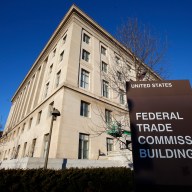In 2007, Jammie Thomas-Rasset, a Minnesotan mother of four, was sued by the Recording Industry Association of America for illegally downloading 24 songs. While the RIAA had threatened people with lawsuits before, her’s was the first case that went to court.
Three years later, it’s still going on. Late last month a jury ordered Thomas-Rasset to pay the association $1.5 million for downloading songs such as Bryan Adams’ Somebody and Sarah McLachlan’s Building a Mystery, and once again — this is her third trial — she’s refusing to pay.
When the RIAA began forcing people to pay big bucks for illegal downloads, there was an understandable amount of outrage. The punishment didn’t seem to fit the crime. Thomsa-Rasset has to pay $62,500 for about $24 worth of music.
Fortunately, those lawsuits seem to have come to an end. An RIAA official told Toronto’s Digital Journal this summer they were stopping their legal campaigns. While many Americans had to cough up money — the average settlement was about $3,500 — it’s pretty clear that the litigation did nothing besides make the association’s lawyers about $17 million richer, and turn the big labels into bullies.
According to the International Federation of the Phonographic Industry, a U.K.-based organization that represents the recording industry, lawsuits aimed at filesharers has raised the awareness of illegal downloading, but that’s about it.
In its 2010 digital report, the IFPI writes, “Despite all the educational work undertaken in recent years, the evidence is strong that awareness-raising alone is inadequate in shaping consumer behaviour in the digital music market. Research has shown that awareness of the law alone has not succeeded in changing behaviour in a sustainable way.”
So what was the point? Awareness is important; it’s likely the music-buying public got turned onto iTunes and other legal file sharing sites quicker because of the lawsuit, but it’s made the major labels look like thugs and it hasn’t scared anyone straight.
Once again, the music industry missed the mark. While content creators should get paid for their work, there must be other ways to curb illegal downloading. I could write a whole article on what that might look like, but the point is, the RIAA should drop the lawsuit again Thomas-Rasset and other Americans that still owe the organization money.
Demanding a mom pay $1.5 million for 24 songs isn’t doing anyone any good. If anything, the mainstream music industry continues to alienate music buyers, while illegal downloaders continue to get their songs for free.
















